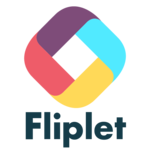Description

Appsme

Fliplet
Comprehensive Overview: Appsme vs Fliplet
As of my last update in October 2023, I can provide a general overview of these platforms based on information available up to that point. However, please note that developments may have occurred since then. Let's break down each of the platforms:
Appsme
a) Primary Functions and Target Markets
- Primary Functions: Appsme was a platform designed to allow businesses, particularly small and medium-sized enterprises (SMEs), to create mobile apps without requiring extensive coding knowledge. Users could design customizable apps with features such as push notifications, in-app purchases, and loyalty systems.
- Target Markets: The primary market included small business owners who wanted to create apps quickly and at a lower cost. It was especially appealing to those in retail, hospitality, and services looking for a straightforward way to enhance customer engagement through mobile apps.
b) Market Share and User Base
- Market Share and User Base: Appsme was relatively niche, focusing mainly on SMEs with limited resources for extensive custom app development. It didn't hold a significant market share compared to larger app development platforms or those serving enterprise clients.
c) Key Differentiating Factors
- Ease of Use: Appsme focused on simplicity, making it easy for users with no technical background to create functional apps.
- Affordability: The platform was cost-effective, catering particularly to small businesses with limited budgets for app development.
Fliplet
a) Primary Functions and Target Markets
- Primary Functions: Fliplet provides a platform for creating cross-platform business apps without coding. It emphasizes collaboration, allowing teams to design, build, and deploy apps quickly. Apps created with Fliplet can be used for internal purposes such as employee communication, auditing, training, and project management.
- Target Markets: Enterprises and mid-sized businesses, especially those needing efficient internal app solutions for multiple uses and departments.
b) Market Share and User Base
- Market Share and User Base: Fliplet has garnered attention particularly in industries like legal, consultancy, and corporate sectors where internal communication and operational efficiency are highly valued.
c) Key Differentiating Factors
- Enterprise Focus: Unlike many low-code platforms, Fliplet targets enterprise needs more than small businesses.
- Customizability and Scalability: Offers more advanced features that appeal to corporate clients seeking scalable, secure app development solutions.
- Integration and Collaboration: Provides robust tools for collaboration among teams as well as integration with various enterprise platforms.
Prognoz
a) Primary Functions and Target Markets
- Primary Functions: Prognoz is typically associated with business analytics and data visualization software. It provides tools for data integration, dashboard creation, and advanced analytics to assist in business intelligence and decision-making.
- Target Markets: Large enterprises and government organizations, seeking comprehensive analytics solutions for data-driven decision-making.
b) Market Share and User Base
- Market Share and User Base: Due to its focus on analytics, Prognoz competes in a space with players like Tableau and Power BI. Its user base primarily includes large entities that require sophisticated analytics infrastructure.
c) Key Differentiating Factors
- Advanced Analytics: Offers complex analytics capabilities suitable for advanced users and large datasets.
- Customization and Flexibility: Provides highly customizable solutions tailored to specific industry needs, which is appealing to large-scale operations.
- Focus on Data Integration: Strong capabilities in integrating diverse data sources and offering comprehensive predictive analytics.
Comparative Summary
- Target Market: Appsme targets SMEs with simple needs, Fliplet focuses on mid-sized to large enterprises for internal applications, and Prognoz caters to large enterprises seeking advanced analytics solutions.
- Market Focus: Appsme is for external apps for customer engagement, Fliplet for internal enterprise apps, and Prognoz for business intelligence.
- Ease of Use vs. Complexity: Appsme and Fliplet emphasize ease-of-use (but Fliplet more for enterprises), while Prognoz offers robust, complex solutions for data-centric organizations.
Contact Info

Year founded :
2005
+44020-3744-1790
Not Available
United Kingdom
Not Available

Year founded :
2009
+44 20 3582 9720
Not Available
United Kingdom
http://www.linkedin.com/company/flipletapps
Feature Similarity Breakdown: Appsme, Fliplet
While I may not have access to the specific and up-to-date feature sets of Appsme, Fliplet, and Prognoz as of October 2023, I can provide a generalized overview based on the common characteristics typically associated with app development and business intelligence platforms. Here’s how these platforms might compare:
a) Core Features in Common
-
Drag-and-Drop Interface:
- All three platforms likely offer intuitive drag-and-drop interfaces that allow users to create applications or reports without deep technical knowledge.
-
Customization and Templates:
- Each platform likely provides a range of customizable templates to streamline the creation of apps or analytics reports, allowing users to tailor elements to their specific needs.
-
Cross-Platform Deployment:
- These tools likely support deployment across various platforms (mobile, web, desktop), ensuring the broad availability of apps or dashboards.
-
Data Integration:
- Compatibility with various data sources and third-party services is likely a common feature, enabling users to integrate existing data into their applications or reports.
-
Security Features:
- Security measures such as user authentication, data encryption, and role-based access controls are likely prioritized across these platforms.
b) User Interface Comparison
-
Appsme:
- Known for its user-friendly approach to app creation, Appsme may emphasize simplicity with a straightforward design that appeals to users who prefer a quick setup process.
-
Fliplet:
- Fliplet probably offers a more sophisticated interface, blending ease of use with flexibility to cater to both novice users and more advanced developers who want deeper customization.
-
Prognoz:
- As a business intelligence platform, Prognoz likely emphasizes robust data visualization and analytical capabilities, with complex dashboards and an interface that caters to data-heavy environments.
c) Unique Features
-
Appsme:
- Might focus on the small to medium business market with features that facilitate community building and engagement, such as loyalty programs or local business integrations.
-
Fliplet:
- Could include advanced collaboration tools or modules specifically geared toward industries like legal services, healthcare, or corporate communication, making it stand out for specific sector applications.
-
Prognoz:
- Likely offers deep analytics capabilities, such as predictive analytics, advanced statistical models, and extensive reporting tools, setting it apart as a high-level business intelligence solution.
Conclusion
While each platform likely shares a core set of features such as ease of use, customization, and integration capabilities, the nuances in their user interface design and unique functionalities cater to different user needs and industries. Specific unique features and interface details would require direct access to the latest product updates or trials from each provider.
Features

Comprehensive Features
Integration Capabilities
Customer Support
User-Friendly Design
Security and Reliability

Publishing and Deployment
Collaboration Tools
App Development
Integrations
Best Fit Use Cases: Appsme, Fliplet
To provide an overview of the best use cases for Appsme, Fliplet, and Prognoz, let's explore these tools individually, highlighting the scenarios in which each would excel:
Appsme
-
Use Cases:
- Small and Local Businesses: Appsme is particularly well-suited for small and local businesses, such as cafes, boutiques, and small service providers, looking to establish a mobile presence without significant investment in custom app development.
- Customer Engagement and Loyalty Programs: Businesses aiming to engage customers through loyalty programs, discounts, and promotions can benefit from Appsme’s easy-to-use platform that enables direct communication with clients.
-
Industry Verticals or Company Sizes:
- Industries like retail, hospitality, and personal services can leverage Appsme to enhance customer interaction and drive repeat business. Its focus on simplicity and cost-effectiveness makes it ideal for small to medium-sized businesses.
Fliplet
-
Use Cases:
- Enterprise Mobility Solutions: Fliplet is an excellent choice for organizations that need to deploy custom apps quickly across various departments or functions, such as HR, sales, or internal communications.
- Event Management and Field Services: Companies hosting events or requiring field service management can use Fliplet to create apps that streamline these processes, offering features like booking systems, attendee management, or data collection in the field.
-
Industry Verticals or Company Sizes:
- Fliplet caters to a diverse range of industries, including professional services, events, and healthcare, often serving medium to large enterprises. Its flexibility and scalability make it viable for organizations needing bespoke app development without extensive coding.
Prognoz
-
Use Cases:
- Advanced Data Analytics and Business Intelligence: When robust data analysis and visualization are required, Prognoz is the go-to solution for enterprises looking to harness their data for strategic insights.
- Complex Reporting and Forecasting: Companies needing sophisticated reporting tools and predictive analytics will find Prognoz suitable for creating custom dashboards and reports that aid decision-making.
-
Industry Verticals or Company Sizes:
- Industries such as finance, manufacturing, and government, where data-driven decisions are critical, can benefit significantly from Prognoz's capabilities. It is typically favored by large enterprises that require advanced analytics.
Comparison and Conclusion
Each platform caters to different business needs and sizes:
- Appsme is ideal for small businesses focusing on customer engagement through mobile apps without a high budget or technical knowledge.
- Fliplet fits companies that require quick, customizable app deployments across different business functions, particularly in larger organizations.
- Prognoz is best suited for enterprises in need of comprehensive analytics solutions to manage and interpret complex data for strategic advantages.
Depending on the specific requirements of a business or project, one of these tools will likely offer the functionality and support necessary to achieve the desired results while considering industry-specific needs and company size.
Pricing

Pricing Not Available

Pricing Not Available
Metrics History
Metrics History
Comparing teamSize across companies
Conclusion & Final Verdict: Appsme vs Fliplet
To provide a comprehensive conclusion and final verdict for Appsme, Fliplet, and Prognoz, let's analyze each product based on overall value, pros and cons, and specific recommendations for users trying to decide between them.
a) Best Overall Value:
Considering all factors such as functionality, ease of use, customization, support, pricing, and target audience, Fliplet generally offers the best overall value. It is particularly strong in offering flexibility and scalability which appeals to a wide range of businesses looking to develop applications without deep technical expertise.
b) Pros and Cons:
Appsme:
Pros:
- User-friendly interface, great for small businesses.
- Quick setup with minimal technical knowledge required.
- Affordable pricing, making it accessible for startups and small entities.
Cons:
- Limited in functionality and scalability compared to other platforms.
- Less suitable for complex, large-scale applications or businesses.
- Fewer customization options.
Fliplet:
Pros:
- Highly customizable and allows for complex applications.
- Suitable for businesses of all sizes.
- Strong community and support network.
- Flexible pricing options.
Cons:
- May have a steeper learning curve for complete beginners.
- Can be overkill for very simple app development needs.
Prognoz:
Pros:
- Powerful analytical and reporting tools.
- Ideal for data-centric applications and enterprises.
- Robust feature set for business intelligence and performance monitoring.
Cons:
- More suited for industry-specific or larger enterprises, less for general app development.
- Higher cost and complexity might not justify its use for smaller businesses.
c) Specific Recommendations:
-
For Small Businesses or Startups: Consider Appsme if you need an affordable, straightforward tool for simple app creation without the necessity for extensive features.
-
For Medium to Large Enterprises Looking for Customizability: Choose Fliplet. It offers a balance of flexibility and power, allowing for apps that can scale and adapt as the business grows.
-
For Data-Driven Enterprises or Industry-Specific Needs: Prognoz is ideal for companies needing comprehensive analytics and business intelligence capabilities integrated into their applications.
Ultimately, the decision will depend on the user's specific needs, budget, and the complexity of the app they intend to develop. Understanding the distinct strengths and limitations of each tool is crucial in aligning them with the organizational goals and technical requirements.
Add to compare
Add similar companies



